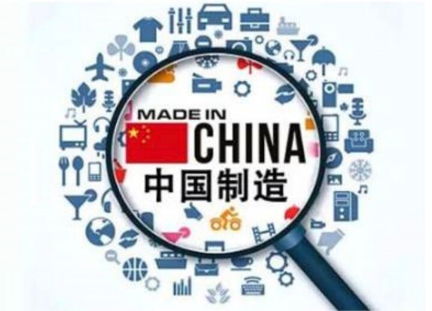Aluminum components are widely used in the global manufacturing industry due to their lightweight, corrosion-resistant, and high-strength properties in industries such as automotive, aerospace, construction, and electronics. However, many buyers often face challenges finding high-quality aluminum component suppliers, including price markups from middlemen, poor communication, and inconsistent quality.
This guide will detail how to bypass middlemen and connect directly with high-quality aluminum component manufacturers in China, helping you reduce costs, improve procurement efficiency, and ensure product quality.
Step 1: Clarify Your Aluminum Parts Needs
Before searching for a supplier, you need to clearly define your requirements so you can more accurately match them with the right manufacturer.
1.1 Determine the Type and Specifications of Aluminum Parts
A wide variety of aluminum parts exist, including:
Cast aluminum parts (e.g., die-cast, sand-cast)
Extruded aluminum profiles (e.g., door and window frames, industrial aluminum profiles)
CNC-machined aluminum parts (e.g., precision machinery parts)
Stamped aluminum parts (e.g., sheet metal parts)
You need to determine:
Material standards (e.g., aluminum alloy grades like 6061 and 7075)
Dimensional and tolerance requirements
Surface treatment (e.g., anodizing, sandblasting, electroplating)
Order volume (sample, small batch, or large-scale purchase)
1.2 Evaluate Quality Certification Requirements
If your product is used in high-end industries (e.g., automotive or medical devices), your supplier may need to possess:
ISO 9001 (Quality Management System Certification)
IATF 16949 (Automotive Quality Management System)
RoHS/REACH (Environmental Compliance Certification)
Understanding these requirements will help you select suppliers that meet these standards and avoid issues during subsequent factory or product inspections.
Step 2: Find a Direct Manufacturer, Not a Trading Company
Many buyers connect with “suppliers” on B2B platforms like Alibaba and Global Sources that are trading companies, which often add a 10%-30% markup. To find a genuine factory, you can take the following approaches:
2.1 Use a Professional Supplier Database
Made-in-China.com: This platform has a high percentage of factories and is suitable for finding professional aluminum manufacturers.
Global Sources: This platform provides detailed factory audit information, allowing you to identify suppliers with production capabilities.
Industry associations and trade shows: Trade shows like ALUMINIUM CHINA offer direct access to factory representatives.
2.2 Verify the Supplier’s Authenticity
Request a Factory Video or On-Site Tour: Authentic manufacturers are often willing to provide videos of their production workshops or invite you for a tour.
Check the Business License and Production Equipment: Use Tianyancha or Qichacha to verify that the company’s business scope includes “manufacturing.”
Request and Test Samples: The quality of the samples directly reflects the supplier’s craftsmanship.
2.3 Contact the factory’s overseas sales team directly
Many Chinese aluminum parts manufacturers have international sales departments. You can contact them through:
LinkedIn search for export managers or sales representatives at relevant companies.
Use the official website contact form or company email (not the inquiry system on a B2B platform).
Step 3: Optimize the procurement process to ensure long-term cooperation
After finding the right supplier, how can you ensure smooth cooperation and reduce costs?
3.1 Negotiate Price and Payment Methods
Aim for a discounted MOQ (minimum order quantity): Bulk purchasing typically reduces unit prices.
Use flexible payment methods, such as a 30% deposit + 70% against bill of lading (T/T), to avoid the risk of paying in full upfront.
Compare multiple quotes: Obtain quotes from 3-5 factories and analyze the cost structure (such as raw materials, processing fees, and logistics).
3.2 Sign a Contract and Define Quality Standards
The contract should include:
Product specifications and testing standards (e.g., dimensional tolerances, hardness testing)
Delivery time (to avoid delays affecting production schedules)
Quality dispute resolution (e.g., arbitration with a third-party testing agency)
3.3 Establish a Long-Term Partnership
Regular factory inspections: Ensure production processes meet requirements.
Provide feedback and optimize the supply chain: Long-term partnerships can result in better pricing and delivery times.
FAQ
Q1: How can I tell if a supplier is a factory or a trading company?
Factory characteristics: They can provide production process videos and workshop photos, and their business license includes the word “manufacturing.”
Trading company characteristics: They have a wide variety of products and may not be able to provide detailed production details.
Q2: Are logistics costs high when purchasing aluminum parts directly from China?
Sea freight (e.g., full container load (FCL) or less than container load (LCL)) is the most economical method, especially for large-volume orders. Air freight is suitable for small, urgent orders.
Q3: How can I avoid quality issues with aluminum parts?
Require suppliers to provide material reports (e.g., SGS testing).
Clearly define acceptance criteria in the contract and consider third-party inspection (e.g., SGS, BV).
Q4: What is the typical delivery time for Chinese aluminum parts suppliers?
Samples: 3-7 days (if existing molds are available).
Mass production: 15-30 days (depending on order complexity and factory schedule).
Q5: What if the supplier defaults?
Clearly define liquidated damages in the contract.
Mitigate risk through Alibaba International Station’s credit guarantee service or letters of credit (L/C).
Conclusion
By clarifying your needs, finding direct manufacturers, and optimizing your procurement process, you can effectively avoid middlemen and achieve more competitive aluminum parts prices and more consistent quality. China boasts one of the most comprehensive aluminum processing chains in the world. With the right approach, you can establish an efficient and reliable supply chain.
If you have further questions or need recommendations for high-quality suppliers, please leave a comment in the comments section!

